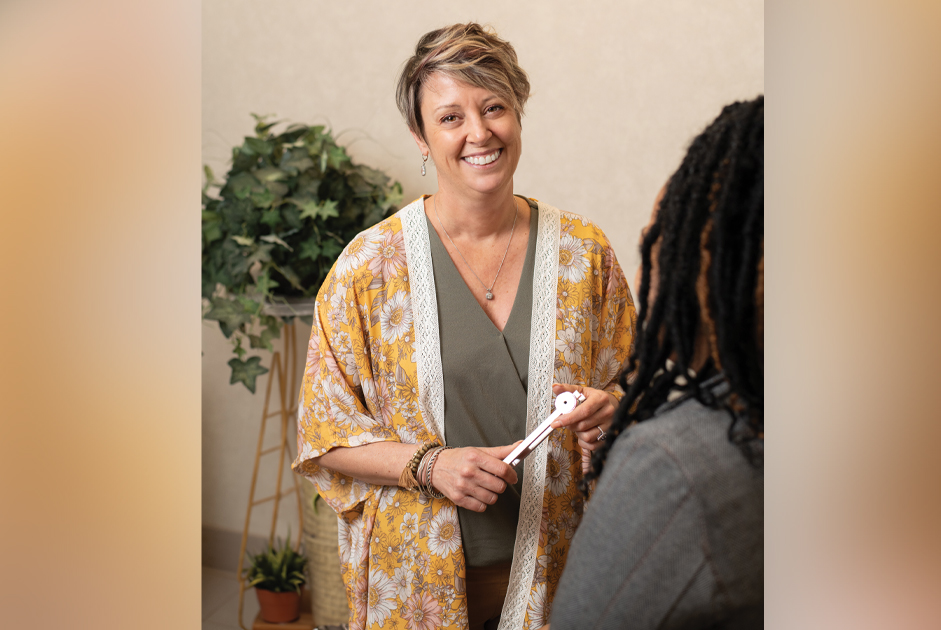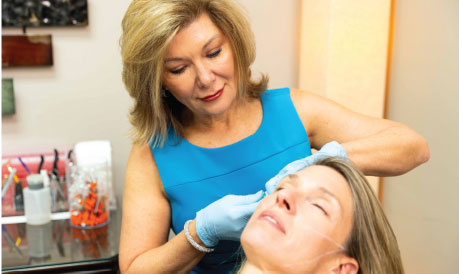The statistics themselves speak volumes. According to the website ovarian.org, “1 in every 75 women will develop ovarian cancer in her lifetime.” Equally as startling is what the Ovarian Cancer Awareness website informs visitors. “Each year, approximately 21,980 women will be diagnosed with ovarian cancer.” The cases increase daily. “It is estimated by the World Health Organization IARC department that there are over 238,000 new cases diagnosed annually and nearly 152,000 deaths worldwide.” What do all of these numbers truly mean to women? They mean that ovarian cancer is one of the deadliest of women’s cancers.
This month, join ovarian cancer alliances nationwide to bring attention to this lethal disease. September is an excellent month to get aware. Especially since the traditional Pap smear does not detect ovarian cancer. This is even more reason to learn the facts about this cancer. Look for the signs, and most importantly, speak to your healthcare provider about any troubling symptoms. If diagnosed and treated in the earliest stages, the 5-year survival rate is over 90%. With this all said, what exactly are these symptoms? What should women be looking for exactly? Read on for specifics and become aware.
Who is typically at risk for this type of cancer? According to the Ovarian Cancer Awareness website, the cancer has a type. “This cancer typically occurs in women in their fifties and sixties with the median age being 63,” the website reveals. Also, it is important to note that “many women who are diagnosed with ovarian cancer have a genetic history that may include carrying the BRCA mutation gene and having a strong family history of ovarian cancer.” Women who also have never been pregnant, or on menopausal hormone replacement therapy, can be at risk.
What can this mean to you? First of all, if you know that you have a family history of ovarian cancer, you should be screened for this as you approach age 50 plus. Secondly, if you are already in this age bracket, but have no genetic history of the disease, it still cannot hurt to be screened.
What are physical symptoms to look out for? The four symptoms which should absolutely be signs to watch out for include: bloating, pelvic or abdominal pain, difficulty eating or “feeling full” quickly and urinary urgency and frequency. However, these are not the only symptoms to look out for. It is pertinent to also look out for nausea, indigestion, gas, constipation or diarrhea; extreme fatigue; shortness of breath; backaches and finally weight gain.
What can this mean to you? Since most women do not seek help until the disease has already spread, it is vital to pay attention to your body and report any symptoms. Especially since many of these symptoms are subtle and may be overlooked.
How long should I wait to call my doctor, if a symptom has occurred? According to the same website, if you are experiencing any of these symptoms for more than two weeks, this is a clear sign to report this to your doctor. Remember, you are your best advocate.
What can this mean to you? There is no adequate screening test of ovarian cancer at this time, which is why the cancer is discovered in later stages, so it is vital to pay attention for how long any of these symptoms last.
What tests will be administered to screen for this cancer? Your doctor may request the following tests if you request to be checked for this cancer.
- Physical examination – Your doctor will palpate your abdomen to look for discomfort and tenderness or abnormal fluid.
- Pelvic examination
- Blood test – Your doctor may order a CA-125 blood test. This test measures CA-125 in the blood. CA-125 is found on the surface of ovarian cancer cells and also normal tissue. A high CA-125 level may indicate ovarian cancer or other conditions.
- An ultrasound
- Biopsy
What can this mean to you? It is important to know upfront that this may be a taxing process. However, the outcome outweighs the immediate inconvenience. With this cancer yearly claiming more women’s lives, it is imperative to educate yourself about this cancer. By being aware, you could save your own life, or the life of someone else you care about.






















